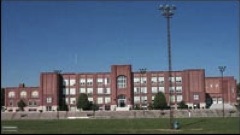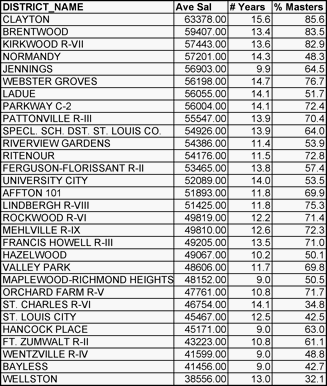Longer school year?
Arne Duncan is looking at longer school days or years to help improve our country’s education and to help our students compete in a global economy in which many countries such as India and China go 20 to 30 days more a year. I’m sure students won’t like this idea, I doubt teachers will, and I’m not confident parents will either. However, I think that we should consider a longer school year.
I was at a committee meeting last night at my children’s elementary school in which the principal was telling us about a decision made to change the allocation of minutes. Every addition of time is a trade-off. Adding more minutes to the school day isn’t necessarily the best decision since young children need some time to play, but a longer year would ease the minute turf war and reduce summer retention problems.
The parents at the meeting kept asking about when the teachers were able to meet together district-wide by grade level. Teaching has traditionally been a solitary profession but is increasingly team-oriented as planning is done in groups. To facilitate this districts need to provide time for teachers to meet in various teams. Some districts do better at this than others, but all of them need to do more.
School year length ranges from 190 days for Farmington to 167 for Wheatland in Hickory County and Appleton City in St. Clair County. The St. Louis city and county districts have a narrower range from 174 to 178 with Ritenour as an outlier at 182 (good for it!). (Numbers from DESE)
The length of school day in St. Louis county and city ranged from 6.6 in Kirkwood (with quite a few districts at 6.5) to Jennings at 6.0. Jennings has a shorter day and one of the shorter years, but other districts mixed the two. For example, Clayton has one of the longer years but shorter days to allow for after school teacher meetings. Some of the districts such as University City and Bayless had a longer day at 6.5 hours but relatively shorter year at 175 days. Kirkwood, Ladue and Ritenour have students attending the most hours. Jennings and Hazelwood are at the bottom.
The number of hours taught ranged in the state from a high of 1209.5 (Centerville in Reynolds County) to 1014.5 (Calhoun in Henry County).
I predict that the we don’t have a significant change in the next couple of years but a quickening of the incremental pace we’ve been having in the increase of time as pressures mount on districts to improve. The state will need to come in and establish minimums for the rural areas that don’t face the same competition.
Put that curriculum on the website!

Rockwood: detailed information on curriculum by content area, info on curriculum development, easy-to-use website
Mehlville: pdf of each grade and high school
MRH: pdf of each school level (elementary, middle, high) and content area, assessment report, easy-to-use website
Clayton: info on curriculum development including names of curriculum coordinators but not information on content level or grade level objectives
Ladue: info limited to elementary math under the district curriculum section
Ferguson-Florissant: no information on district site that I could find via browsing or by search, no info in at least two elementary schools (Airport Elementary, Bermuda Elementary)
SLPS: no information that I could find via browsing, no search available; no info in at least three elementary schools (Adams, Ashland and Cote Brilliante)
Since curriculum drives education, I applaud Rockwood and MRH for having comprehensive, easy-to-use curriculum sections on their websites. Clayton and Ladue have some catching up to do. Ferguson-Florissant and the SLPS are embarrassingly lacking in this area. While I didn’t look at every district’s website, I encourage educators to think about what they include and emphasize on their websites and the message that sends to their parents and broader community.
Should teachers go to school?
 (photo by dcJohn)
(photo by dcJohn) Ladue teachers are going back to school.
❝Ladue, one of the top-performing districts in the state, has recently told its teachers with bachelor's degrees that a master's degree "will be the new standard expected" within four years.❞ (St. Louis Post-Dispatch)
The Post article basically says that the teachers aren’t going back to improve their teaching, as “study after study” shows that further education isn’t worth much. Then why would Ladue encourage their teachers to spend their time in class?
❝To the Ladue School District, it's worth their reputation, and the support of voters who may approve or deny tax increases.❞
That seems harsh. Maybe pragmatic?
I had noticed the Ladue outlier in a post on teacher salaries last spring.
I would like to drill deeper into the research on graduate studies since it seems so counter-intuitive to me as both a former teacher and as someone who has looked at a lot of numbers. I have a lot of questions.
Would the research differ if we factored in the type of degree and/or the challenge level?
❝I still see a lot of generalist master's programs that are pretty easy and painless for teachers to get through," Hausfather [dean of education at Maryville University] said. "It's still hard to push programs that push people. They just want to get a degree and a pay raise.❞ (St. Louis Post-Dispatch)
❝They [Goldhaber and Brewer (1996) also found that, although advanced degrees in general were not associated with higher student achievement, an advanced degree that was specific to the subject area that a teacher taught was associated with higher achievement.❞ (Center for Public Education)
Would the research differ if we isolated certain age levels or certain subject areas?
❝Goldhaber and Brewer (1996) found that the presence of teachers with at least a major in their subject area was the most reliable predictor of student achievement scores in math and science.❞ (Center for Public Education)
What long-term effects does being perceived as more professional have on the teaching profession?
This seems to be the affect Ladue is going for. I’m not sure how it can be measured. Have they done surveys?
What do teachers make anyway?

Source: DESE
I assumed that Clayton would be the top-paying district in the county, and I was correct. The average is high because the district prioritizes experience and advanced eduction. The average number of years teaching is 15.6; while Webster Groves, the next highest, is 14.7—almost a year less.
Clayton, Brentwood and Kirkwood all have over 80 percent of teachers with at least a master's degree. They are also the highest paying districts. This is no coincidence as I found a .76 correlation between average salary and percent with a master's. This is much higher than the still statistically significant .40 correlation between average salary and average number of years teaching.
At a future date I will compare the percent with a master's to quality of schools because in looking at it, that seems to be a pretty good indicator, with Ladue as a weird outlier. (What's up with Ladue only having 50 percent of its teachers with a master's? They're not young (14.1). This deserves further research.)